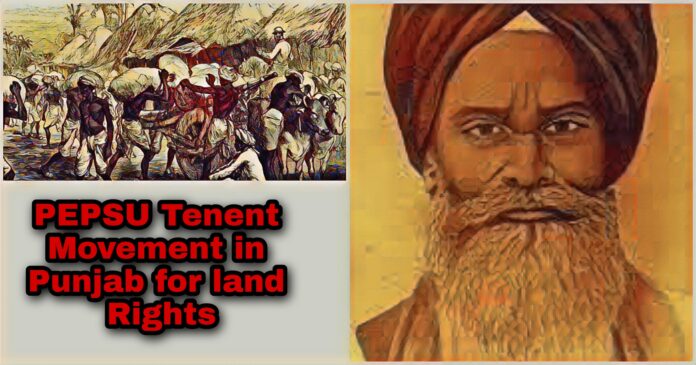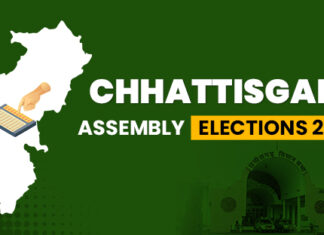Pepsu Tenant Movement or the Muzara Peasants Movement was a revolt of the sharecroppers of eight Princely states, Patiala and East Punjab States Unions, for land ownership rights. Muzara means share-cropping, where a landowner leases out a part of land to an agricultural worker or tenant, who cultivates in return for a predetermined share of the produce.
Between 1708 to 1715, Baba Banda Singh Bahadur, a Sikh warrior, had led Sikh uprisings against the Mughal empire after the death of the Sikh guru, Gobind Singh and had abolished the Zamindari system of the Mughal era. However, in 1793, Charles Cornwallis, who was then the commander-in-chief of British India, re-established the zamindari system in several areas under the Permanent Settlement Act.
In the 1870s, the Maharaja of Patiala implemented the Biswedari or big landlord system, which appointed biswedaris as local authorities of villages. The biswedaris, mostly government officials and close kin of the Maharaja, gradually took full possession of lands and reduced the original owners to muzaras or tenants. These Muzaras had to pay batai or share rent to their landlords, consisting of half of their crop and the landlords often overestimated the crop yield to justify taking a larger share.
Also read: Why Labour Code Bills are more Dangerous than the Farm Bills?
The Muzara movement of 1930 to 1953, fought in 784 villages was an organised effort and had its roots in the Praja Mandal movement of the 1920s. The Praja Mandals were localised peoples’ movements to demand an end to the Biswedari system and for democratic rights from the British and the native aristocracy. The movement started when tenants in the two villages of Rajomajra and Bhadaur began refusing payments of batai to their landlords in May 1930. Many had lost their hereditary property rights within their own lifetimes. The tenants began to hand over their crops’ share only under police supervision and gradually in several other villages landlords increasingly had to rely on police force to collect batai. Some tenants destroyed their own crops in order to avoid paying their landlords.
2. What exactly happened?
In 1930, under the primacy of the British Raj, Maharaja Bhupinder Singh refused to tolerate political dissent and jailed anyone who publicly spoke out against the government. Sewa Singh Thikriwala, then leader of the Praja Mandal, began organizing tenants in several Biswedari villages, encouraging them to withhold payment of batai to landlords. Praja Mandal members Bhagwan Singh Longowalia and Jagir Singh Joga also helped to organize and lead the resistance. Thikriwala was arrested and tortured several times, the last time in November 1930 and he died in jail four years later. Longowalia was arrested in 1933 and he died in prison in 1935 after a prolonged hunger strike.
The Maharaja enacted a law in 1932, making any form of political meeting illegal, but tenants continued to organize and meet in secret or across state borders. Police systematically repressed tenants, forcibly confiscating their crops for batai payments, and imprisoning resisting tenants. The high level of repression and lack of organization among villages made it difficult to maintain resistance efforts. Later a violent confrontation between police and tenants on November 25, 1937 in the village of Qila Hakiman publicized the plight of tenants. Three hundred to four hundred tenants were peacefully protesting, asking police not to take away their crops when police and landlords opened fire. The state government made an official inquiry into the incident.
The magistrate condemned the tenants for their defiance of authority and exonerated police of all charges of excessive use of force. In response, the Praja Mandal formed a counter committee to investigate the issue and came to the conclusion that the tenants were unarmed and peaceful, and landlords had illegally participated in the shooting. This report was printed and distributed.
Also read: The First Worker’s Revolution: Remembering the Paris Commune on its Sesquicentennial
























